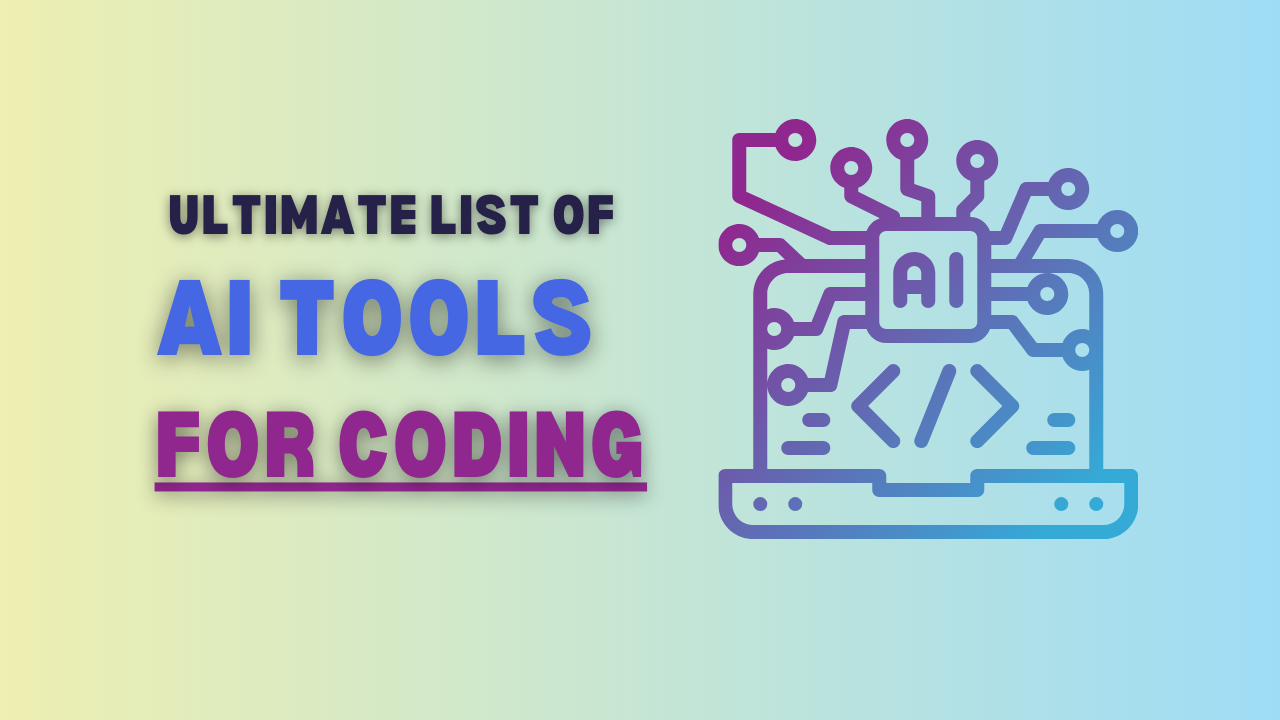In the competitive field of software development, staying ahead involves the use of state-of-the-art tools and technologies. AI Coding Tools have been a boon, transforming how developers code, debug, and optimize. From autocompletion to code generation, the tools bring a wealth of features that are aimed at making workflows seamless and productivity-packed.
In this blog, we’ll explore some of the top AI Tools for Coding in the market, highlighting their key features, benefits, and potential considerations for developers.
How to Choose the Perfect AI Coding Assistant for Your Needs
1. Identify Your Use Case
- Are you looking for an AI to speed up coding, debug errors, or generate explanations?
- If you’re someone working on competitive programming, a tool like AlphaCode might be best for you.
- If you want real-time code suggestions within an IDE, GitHub Copilot or Tabnine could be the perfect tool for you.
2. Check Language & IDE Compatibility
- Some tools, like OpenAI Codex, support multiple languages, while other tools may specialize in specific ones.
- Make sure that the tool integrates smoothly with your preferred development environment.
3. Prioritize Security & Privacy
- If you’re working with sensitive code, go for Tabnine, which offers local AI models for better privacy.
- Avoid any tools that store or analyze your code externally without using proper security measures.
4. Consider the Learning Curve
- Some AI tools, like CodeT5, require customization and expertise for the best results.
- If you’re a beginner, tools with natural language support, like Replit AI, might be more user-friendly.
5. Compare Pricing & Features
- Free options available in the market would be great for casual or beginner use.
- Subscription-based tools (GitHub Copilot, Gemini, Cody) usually provide more advanced features as compared to free AI tools.
- Enterprise solutions (Tabnine, Codeium, and OpenAI Codex) cater to larger teams and businesses.
Benefits of Using AI in Coding
1. Increased Productivity
- AI tools provide real-time code suggestions, ultimately reducing the time to develop codes.
- Autocompletion and smart recommendations features help developers write code faster.
2. Reduced Errors & Debugging Assistance
- AI-powered tools can detect syntax errors and offer fixes for the same.
- Debugging assistants highlight potential vulnerabilities, which in turn improves code quality.
3. Learning & Skill Enhancement
- Some AI tools provide explanations for codes, making them valuable for beginners.
- AI-powered chat support allows developers to ask questions and get instant feedback.
4. Simplifies Repetitive Tasks
- AI automates repetitive coding tasks, such as unit test generation and code summarization.
- It allows developers to focus on higher-level problem-solving rather than focusing on boilerplate code.
5. Supports Multiple Programming Languages
- Many AI coding assistants support various languages, making them perfect for different projects.
- Some AI tools can generate code in Python, JavaScript, and many other languages.
Challenges of Using AI in Coding
1. Accuracy & Reliability Issues
- AI-generated code isn’t always perfect; errors, inefficiencies, or security risks might come up.
- Developers must review and refine the codes suggested by AI before using it in production.
2. Limited Customization & Context Awareness
- Some AI tools provide very generic suggestions that might not fit a developer’s specific coding style or even project needs.
- While some tools offer personalized assistance, others might require you to adjust them manually.
3. Privacy & Security Concerns
- Cloud-based AI assistants might store or analyze code, which raises security risks.
- Some tools prioritize privacy by allowing local AI models, but others require internet connectivity.
4. Dependency on AI & Reduced Critical Thinking
- Overreliance on AI suggestions might reduce a developer’s ability to solve problems by themselves.
- AI should be used as an assistant, not a replacement for learning core programming skills.
5. Subscription Costs & Accessibility
- While some AI coding assistants are free, others require paid plans.
- Advanced features often come with a cost, which might not always be feasible for every developer.
Let’s take a deeper look at the tools:
| Tool Name | Best For | Unique Advantage | Limitations | Pricing |
| AskCodi | Quick coding help & explanations | Natural language query-based code suggestions | Suggestions may lack precision | Freemium: paid plans for advanced features |
| GitHub Copilot | Real-time coding assistance | Context-aware code completions in popular IDEs | Requires human validation for accuracy | $10/month for individuals; custom pricing for teams |
| Cody (Sourcegraph) | Code maintenance & unit testing | AI-assisted autocomplete & test generation | Limited programming language support | $9/month for individuals; enterprise pricing available |
| AlphaCode | Competitive programming & problem-solving | Expert commentary & diverse problem solutions | Not ideal for general development | Free tier; premium plans start at $20/month |
| CodeT5 | AI-driven code automation | Deep learning-based summarization & translation | Requires expertise for customization | Usage-based pricing; custom for enterprise |
| Tabnine | Privacy-conscious AI assistance | Fully local AI model option for secure coding | Requires integration with codebase | $12/month for individuals; $32/month for teams |
| Replit AI | Beginners & collaborative projects | Code generation from natural language inputs | Limited advanced programming capabilities | Freemium; premium plans start at $12/month |
| OpenAI Codex | Converting plain English to code | Supports multiple programming languages | Struggles with complex projects | Usage-based pricing; private beta access |
| Codeium | AI-powered code suggestions in IDEs | Seamless integration with multiple IDEs | Language support may vary | Free for individuals; enterprise plans from $12 |
| Gemini (Google) | AI-assisted coding with Google tools | For debugging & code optimization | Not always accurate, requires verification | Free for basic use; premium plans start at $20/month |
| Table of Contents |
| AskCodi |
| GitHub Copilot |
| Cody (Sourcegraph) |
| AlphaCode |
| CodeT5 |
| Tabnine |
| Replit |
| OpenAI Codex |
| Codeium |
| Gemini (Google) |
Ultimate List of AI Tools For Coding
1. AskCodi
AskCodi is an AI-based coding assistant that enhances the efficiency of programmers through smart code suggestions, error detection, and code explanation. AskCodi applies advanced natural language processing (NLP) algorithms to analyze and interpret user commands in order to give context-relevant code assistance in coding tasks. AskCodi aims to ease software programming by reducing the duration taken in code and debugging tasks, thereby making it an invaluable tool for programmers of any experience level.
Features:
- AI Code Generation: AskCodi offers developers AI-powered support with suggestions on different coding problems.
- Natural Language Queries: Natural language queries can be used by developers to interact with AskCodi, making it easy and user-friendly.
- Code Autocompletion: The feature provides code autocompletion suggestions based on the context, accelerating the coding.
- Error Detection: AskCodi can identify possible errors in the code and suggest how they can be corrected, enhancing the quality of the code.
- Code Explanation: Programmers can ask for code explanations of code snippets, which helps interpret difficult programming ideas.
Cons:
- Accuracy Problems: AskCodi may occasionally make a mistake or be uninformed, which will be double-checked and extensively tested.
- Limited Customization: While AskCodi offers assistance, certain programmers have found its suggestions to be generic or do not meet their coding standards and, hence need further customization.
- Output Variability: AskCodi code does not always generate the desired output and may need to be manually tuned and verified.
- Learning Curve: New AskCodi users can have a learning curve in learning about its features and adjusting to its suggestions, which can discourage first-time usage.
Pricing:
- Premium- $149.99 per year
- Ultimate- $349.99 per year
Review
AskCodi is a great AI coding assistant that speeds up development with code autocompletion, explanations, and error detection. While the tool is great for quick coding help, its suggestions can sometimes feel very generic or require extra customization. It’s a useful tool but works best alongside human validation.
2. GitHub Copilot
GitHub Copilot is a code assistant powered by AI developed by OpenAI and GitHub. It provides intelligent code completion and suggestions directly in the code editor, which allows developers to code faster and more efficiently. GitHub Copilot is trained on a large amount of code in open-source repositories, so it can provide context-sensitive alternatives for various programming languages and frameworks.
Features:
- AI Coding Assistant: Provides context-aware assistance throughout the whole software development process.
- Code Quality Improvement: Enhances code quality and features integrated vulnerability prevention.
- Collaboration Support: Acts as an additional team member, allowing team members to collaborate more closely together.
- Real-Time Suggestions: Offers real-time code completion recommendations based on the project context and style rules.
- Personalized Documentation: Offers customized answers using the organization’s knowledge base, thus avoiding the time spent on searching.
- Integrations: Provided as an extension in regular code editors and in terminals via GitHub CLI.
Cons
- Language Assistance Limitations: Can be weak with non-English language inputs, impacting non-English speakers.
- Potential Offensive Outputs: Even with attempts to censor offensive outputs, there can be cases where GitHub Copilot generates offensive language or suggestions.
- Intellectual Property Issues: The clients must check and approve proposals to avoid possible issues of copyright infringement and intellectual property theft.
Pricing:
- Free with basic features
- Pro- $10 per month
- Business- $19 per user/month
- Enterprise- $39 per user/month
Review
GitHub Copilot is like an AI-powered coding buddy that predicts and completes your code in real time. It’s incredibly useful for boosting productivity, but its suggestions need verification for accuracy and security. Therefore, the tool is Ideal for developers looking to speed up their workflow.
3. Cody (Sourcegraph)
Cody is an AI coding assistant developed by Sourcegraph, aimed at improving developer productivity and code quality. It offers features such as AI-assisted autocomplete, code explanation, unit test generation, and context-aware code editing. Cody makes use of advanced machine learning algorithms to give intelligent code suggestions and assistance, making it easier for developers to write, understand, and maintain code.
Features:
- AI-Assisted Autocomplete: Cody provides autocomplete functionality for coding in multiple programming languages, thus speeding up the coding process.
- AI Chat for Code: There is an AI-driven chat option available that users can use to get help in decoding and solving tricky coding issues.
- Pre-Built and Custom Commands: Cody offers pre-built and custom commands for automating code tasks and increasing productivity in workflow.
- Code Explanation: Code explanations for code snippets and repositories are available to users, facilitating understanding and onboarding to new projects at a quicker rate.
- Unit Test Generation and Code Smell Detection: Cody can be utilized to create unit tests for code functionality and quality assurance and identify and describe code smells for better code for best practices and maintainability.
Cons:
- Limited Language Support: Cody’s efficacy may be limited by the languages it can utilize, which could limit its use on some projects.
- Learning Curve and Enterprise Integration: There will be a learning curve for users who are new to using the capabilities and features of Cody, particularly if they are not used to using AI coding software. Additionally, organizations seeking greater security and scalability may require Cody Enterprise, which will be an additional cost and may have integration problems.
Pricing:
- Free with basic features
- Enterprise starter- $19 per user/month
- Enterprise- $59 per user/month
Review
Cody is great at helping developers with AI-assisted autocomplete, code explanations, and test generation. It’s a great tool for maintaining and understanding code, though its effectiveness depends on the programming languages it supports. The tool is a great fit for structured coding environments.
4. AlphaCode
AlphaCode is an AI-powered coding assistant that allows developers to write code faster and more precisely. AlphaCode features attention visualization, an interactive interface, randomly sampled solutions, expert explanations, and explicit data limitations disclosure. AlphaCode uses advanced AI algorithms to provide context-aware feedback and suggestions on code and enable developers to improve coding capability and productivity.
Features:
- Attention Visualization: Offers attention visualization, which indicates tokens focused on while generating solutions.
- Interactive Interface: Provides a user-friendly interface that allows for active engagement with the tool.
- Randomly Selected Solutions: Provides randomly selected solutions to provide varied problem-solving solutions.
- Expert Commentary: Includes expert programmer commentary, offering tips and advice.
- Data Limitations Disclosure: Transparently reveals dataset limitations to enable users to form realistic expectations.
Cons:
- Limited test coverage: Due to data constraints, does not necessarily test all possible cases, leading to potential false positives.
- Limited Language Support: Effectiveness will be based on whether English natural language prompts are employed.
Pricing:
- Free with basic features
- Advanced- $20 per user/month
Review
AlphaCode is a powerful AI tool for competitive coding that offers unique problem-solving approaches and expert insights. While it’s great for coding challenges, its test coverage is limited, so the results might need verification. It’s best suited for programmers exploring algorithmic solutions.
5. CodeT5
CodeT5 is a coding AI software based on the Google T5 architecture, which is meant to support code generation, understanding, and summarization. It has advantages like transformer technology, T5 architecture, bimodal dual learning objective, seq2seq architecture, code understanding, and extensive applications. CodeT5 utilizes advanced natural language processing approaches to deliver precise code suggestions and support to developers.
Features:
- Transformer Technology: Utilizes cutting-edge Transformer technology for understanding and code generation.
- T5 Architecture: Two identifier tagging and prediction tasks are added to the T5 architecture based on.
- Bimodal Dual Learning Objective: Utilizes two-way conversion between natural language and computer language.
- Seq2Seq Architecture: Employing a sequence-to-sequence architecture with a neural language model for enhanced performance.
- Code Understanding: Enhances code element comprehension like variables, functions, and classes.
- Broad Applications: Can be used for various code-related tasks such as code completion, summarization, and translation.
Cons:
- Expertise Needed: Users might require a basic knowledge of programming languages to make full use of it.
- Training Requirements: Training and perfecting the model to individual jobs may require more time and effort.
- Complexity: Applying CodeT5 to some projects or applications could be a reason for complexities in development.
Pricing:
- Free with basic features
- Team- $4 per user/month
- Enterprise- $21 per user/month
Review
CodeT5 makes use of deep learning to generate, understand, and summarize code, making it useful for automation. However, implementing the tool requires some expertise, and customization can be tricky. It’s a strong tool for those looking for AI-assisted coding efficiency.
6. Tabnine
Tabnine is an AI-powered code completion technology built to speed up coding and optimize developer productivity. Tabnine features switchable models, personalization, onboarding agents, code privacy, and industry-leading code generation. Tabnine leverages machine learning algorithms to observe code patterns and offer smart code suggestions and completions to facilitate the code-writing process.
Features:
- Switchable Models: Offers switchable AI models for personalized coding suggestions.
- Personalization: Provides personalized suggestions and code completions based on the user’s code and standards.
- Onboarding Agent: Assists in onboarding developers by taking them through codebases and recommending things.
- Code Privacy: Puts code privacy and protection at a premium, where AI support does not store or share code.
Cons:
- Connectivity Restraints: The users must link their codebase to Tabnine to receive complete AI support.
- Learning Curve: It may take teams some time to get used to the pace of change with AI coding tools.
- Limited Customization: Few pre-defined options can necessitate extra setup for unique requirements.
Pricing:
- Dev- $9 per month/user
- Enterprise- $39 per month/user
Review
Tabnine provides AI-powered code completions that adapt to your coding style very easily, making development smoother. It prioritizes privacy, but customization options are somewhat limited. Great for developers looking for an AI coding companion that respects security concerns.
7. Replit
Replit AI is a next-generation AI coding platform that seeks to make coding easier and more fun for developers. It offers natural language coding, multi-file code context, collaborative AI chat, unknown code clarity, code generation from natural language, auto-complete suggestions, and contextual AI for any codebase. Replit AI employs sophisticated AI algorithms to provide developers with personalized assistance and code suggestions to allow developers to write, read, and code together.
Features:
- Natural Language to Code: Translates natural language instructions into code, and therefore, coding becomes simple.
- Multi-file Code Context: Gives context-specific assistance depending on the context of the project’s codebase.
- Collaborative AI Chat: Enables effortless collaboration between developers using AI-powered chat.
- Clear Documentation: Provides clear documentation with concise, clear, and succinct descriptions.
- Code Generation: Generates code from natural language requests that are more debuggable and modifiable.
- Auto-complete Suggestions: Offers suggestions as developers type, which saves time and increases efficiency.
Cons:
- Language Support Limitations: Some developers might face difficulty if their preferred language is not fully supported.
- Privacy Concerns: Users should be aware of data privacy implications and potential risks that are associated with sharing code.
Pricing:
- Free with basic features
- Replit core- $20/month
- Teams- $40 per user/month
Review
Replit AI brings AI-powered code generation and chat-based assistance into an interactive coding environment. It’s a fantastic tool for beginners and collaborative projects, though language support could be better. Overall, a helpful tool for quick coding and debugging.
8. OpenAI Codex
OpenAI Codex is a revolutionary AI-driven coding assistant built by OpenAI to transform the coding process for programmers. It features natural language coding, multi-language capability, large memory capacity, code generation, and general-purpose design. OpenAI Codex applies advanced natural language processing methods to interpret and translate user requests to intelligent code suggestions and completions in real-time.
Features:
- Natural Language Coding: Code by entering straightforward natural language commands.
- Multilingual Support: Fluent in well over a dozen programming languages, including Python, JavaScript, Go, and more.
- Large Memory Capacity: It has a 14KB memory for Python code, enabling consideration of extensive contextual information.
- Code Generation: Generates real code from natural language inputs such that computers can understand user intent.
- General-Purpose Model: An open-source, pre-trained general-purpose model for other programming tasks.
- API Access: Available via API in the private beta phase for developers and businesses to build upon.
Cons:
- Complexity Limitations: Effectiveness varies with the complexity of the project, with variable outcomes for certain issues.
- Learning Curve: New users will have a learning curve to get used to its features.
- Private Beta Limitations: Limited access throughout the private beta phase can restrict usage and availability for certain users.
Pricing:
- Free with basic features
- Plus- $20/month
- Pro- $200/month
Review
OpenAI Codex translates natural language into code easily, which makes it a game-changer for beginners and experienced coders. However, it struggles with complex tasks and requires some human oversight. Best for those looking for a creative AI-powered coding assistant.
9. Codeium
Codeium is a strong AI-powered coding assistant whose mission is to make software development simpler. Codeium offers the capabilities of AI-powered code completion, context-aware suggestion, code summarization, code comprehension, and integration in top IDEs.
Features:
- AI-Powered Code Completion: Codeium provides smart code completion suggestions with the help of AI algorithms.
- Context-aware Suggestions: Gives context-aware suggestions based on the programming language and the context of the current code.
- Code Summarization: Captures code fragments and offers information regarding their objective and functionality.
- Code Understanding: Enables programmers to comprehend code constructs like variables, functions, and classes in a deep analysis manner.
- IDE Integration: Smooth integration with top-notch Integrated Development Environments (IDEs) to ensure a better coding experience.
Cons:
- Learning Curve: New users of AI-driven coding tools may have a learning curve to maximize the full potential of all Codeium features and functionalities.
- Language Support: Users experience that based on the supported programming languages, there are restrictions on using Codeium for certain projects.
- Computationally Costly: It may be computationally expensive and time-consuming to train and tune the AI model for a specific task.
- Limitations of Customization: Despite Codeium having advanced features, some users may find limited choices for customization in order to accommodate their specific coding requirements.
Pricing:
- For Individuals- Free with basic features, Pro- $15/month, Pro Ultimate- $60/month
- For Organizations- Team- $35 per user/month, Team Ultimate- $90 per user/month
Review
Codeium offers AI-driven code completion and summarization, making it a very helpful tool for developers. While it speeds up coding, its effectiveness varies based on language support. Overall, the tool could be a good addition for those who want AI-assisted productivity.
10. Gemini (Google)
Gemini is a coding tool for artificial intelligence created by Google to assist developers in coding faster and more accurately. It includes features such as code generation for over 20 programming languages, debugging assistance, optimization suggestions, integration with Google Colab for Python code, and Google Sheets function support.
Features:
- Code Generation: Gemini supports code generation for more than 20 programming languages.
- Code Debugging: It debugs the code, including itself, and is able to fix bugs in the provided code.
- Code Explanation: Gemini can explain code snippets, allowing beginners to grasp programming principles.
- Optimization Recommendations: Gemini can be requested by users to recommend optimizations for speed and performance.
- Export to Google Colab: Exporting Python code to Google Colab is relatively simple.
Cons:
- Accuracy Problems: There may be occasional inaccuracy or missing data displayed by Gemini, which has to be double-checked and correctly tested.
- Variability of Output: Gemini’s programming occasionally produces varied results from the anticipated output and requires manual correction.
- Risk of Errors: The users need to review the code for bugs, errors, and vulnerabilities irrespective of Gemini’s feedback.
- Limited Customization: While Gemini offers optimization suggestions, they may not meet specific needs, and more customization will be needed.
Pricing:
- Gemini 2.0 Flash- Free
- Advanced- $20 per month
Review
Gemini helps developers generate, debug, and optimize code across multiple languages. It’s great for learning and quick fixes, but its accuracy isn’t that perfect. Useful for those who want an AI-backed coding assistant with Google integration.
With the speedy advancement of technology, AI coding assistants will certainly be taking a greater role in software development in the world. With artificial intelligence, developers will be able to write cleaner, more effective code faster. Nevertheless, it is worth noting that the tools are meant to supplement, not substitute, human intelligence. Therefore, developers ought to view AI coding assistants as good partners in their quest for innovation and efficiency, never forgetting critical thinking and best practices along with these mighty tools.
But the world of AI doesn’t stop here. If you’re intrigued by the possibilities AI offers, be sure to explore our other blogs, where we delve deeper into the realm of AI-powered tools:
- Top AI Tools for Web Development in 2024
- 15 Must-Have AI Copywriting Tools to Boost Your Content
- 15 Social Media AI Tools You’ll Need in 2023
- Top 15 AI Logo Design Tools
FAQs
Not always. While AI tools can generate useful code, they are not always accurate. Developers should always review, test, and refine AI-suggested code to make sure the codes are accurate and secured.
Most of the AI coding assistants support multiple languages, including Python, JavaScript, Java, and more. However, some of the tools might have better performance in certain languages depending on their training data.
Yes! Many AI coding assistants can detect syntax errors, highlight potential issues, and even suggest fixes to improve overall code quality.
Definitely! As AI models continue to learn from vast amounts of data and user feedback, they will become even more efficient, accurate, and context-aware in the near future.






